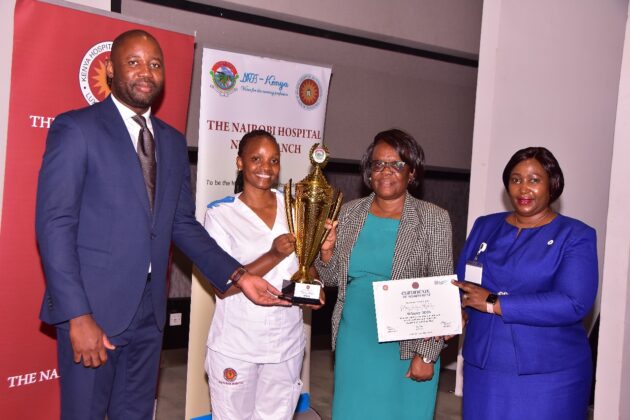
Daystar University Dean school of Nursing calls for greater investment in nurses’ well-being to boost productivity » Capital News
NAIROBI, Kenya, May 13 — The Dean of the School of Nursing at Daystar University, Dr. Susan Njuguna, has called for increased investment in the well-being and mental health of nurses, stressing that such support is crucial for both quality healthcare delivery and economic development.
Speaking during the commemoration of International Nurses Week at The Nairobi Hospital, Dr. Njuguna emphasized that the quality of care provided by nurses directly influences national economic productivity.
This year’s celebration, themed “Our Nurses, Our Future: Caring for Nurses Strengthens Economies,” focused on the often-overlooked economic impact of nursing care and the essential role nurses play in healthcare systems.
Dr. Njuguna identified the workplace environment as a critical factor in a nurse’s performance and mental health.
She emphasized the importance of creating supportive and dignified workspaces where nurses can thrive both professionally and personally.
“We need to prioritize the care of the nurse because when a nurse comes to work, he or she comes first as a person—with her or his own personal and professional challenges. How we support the nurse’s well-being and dignity directly impacts on the patient he or she is going to take care of and as they look after that patient, the patient becomes well and goes on to influence the economy,” she said.
“The care that is provided by every nurse at every point whether it is a baby, this baby may become a great thought leader that we are looking out for. So, the wellbeing of the nurses must be prioritized by all institutions that work with nurses.”
The Daystar University dean stressed that when nurses feel supported, they are better equipped to deliver high-quality care, which contributes to faster patient recovery and increased national productivity.
Dr. Njuguna also sounded the alarm on the urgent need for mental health support programs tailored for nurses, who are frequently exposed to high levels of stress, trauma, and burnout.
“Growing up in the profession, we never thought nurses could have mental health issues. You just had to find a way to keep going. But now we know better,” she said calling for the establishment of structures that offer support when nurses face emotional or psychological difficulties.
She urged healthcare institutions to develop safe and nurturing environments, including practical support systems such as palliative care services, stress management, emotional wellness programs, and physical safety measures—especially in high-risk settings.
“Sometimes, a nurse is slapped by a patient, and somehow, it’s still seen as the nurse’s fault. We need to change that narrative and ensure nurses are protected and respected,” she emphasized.
Dr. Njuguna further called for improvements in healthcare infrastructure, including adequate medical supplies, efficient health financing systems, effective communication tools, and consistent opportunities for professional development.
She lamented the persistent challenges faced by nurses in the public sector, such as shortages of basic medical supplies and limited access to healthcare services for themselves.
Importantly, she advocated for greater representation of nurses in policy-making spaces, urging stakeholders to view nurses not only as caregivers but as leaders capable of shaping health systems.
“We need leadership and governance resources. Nurses must be at the table where decisions are made—from operational planning to top-level strategy,” she said.
Highlighting the multifaceted roles nurses play—from clinical care and hospital operations to records management and financial planning—Dr. Njuguna reiterated the need to equip them with the right tools, training, and leadership development opportunities.
In support of these efforts, Acting CEO of The Nairobi Hospital, Felix Osano, reaffirmed the institution’s commitment to empowering nurses through strategic investments in training, international exposure, and professional development.
“We are committed to not just saying we value you—but showing it through tangible action and opportunity,” he said.
He revealed that since January 2025, the hospital has supported the participation of 32 nurses in national nursing conferences and enabled 56 nurses to complete life-saving certifications, including Basic Life Support (BLS) and Advanced Cardiac Life Support (ACLS).
Looking ahead, Osano announced that the hospital will sponsor four nurses to attend the International Council of Nurses Conference in Finland this June.
Additionally, a higher diploma sponsorship program in specialized nursing fields is set to launch in August, with nurses encouraged to apply when the call opens.
Margaret Muiyoro Ag Director Nursing Services at the hospital lauded nurses as the “backbone” of any hospital and an “economic power.”
“Nurses are very innovative and when it comes to research, they are exemplary,” she said.
The event held to mark International Nurses Day—celebrated annually on May 12 in honor of Florence Nightingale’s birthday—concluded with a recognition ceremony where 22 nurses from The Nairobi Hospital were honored for exemplary service.